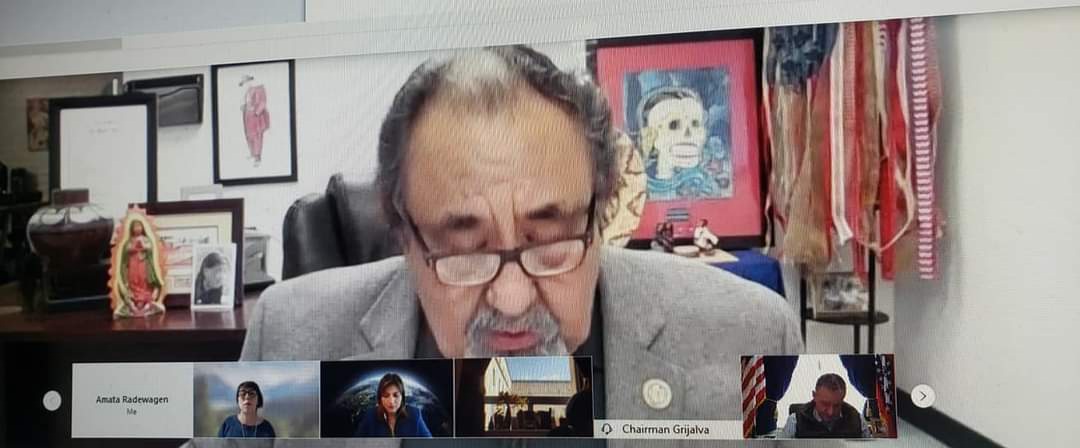Amata Backs Erosion-Control Resources, and Self-Determination on Wind Power
Washington, D.C. – Congresswoman Uifa'atali Amata spoke in the House Natural Resources Committee on Thursday in support of resources, such as funding sea walls and other shoreline stability needs dealing with erosion, sea rise, climate and Tutuila's known settling.
In addition to sea rise, the island of Tutuila is also subsiding. This issue has been highlighted by the University of Hawaii Sea Grant College Program's Kelley Anderson-Tagarino, who in 2019 described global sea level rise averages at 1/8th of an inch, but our local relative sea level rise rate at approximately 3/4ths inch/year because Tutuila has also been subsiding (sinking) at a rate of about 0.63 inches/year. The two factors combine for a loss of 7.6 inches in the past decade, and the rate subsidence increased following the destructive 2009 earthquake and tsunami.
"Any resiliency initiatives for American Samoa should take this into consideration and prioritize buffering our sea wall construction and preventing erosion," Amata said to the Committee.

Chairman Grijalva in the Natural Resources Committee remote hearing viewed from Congresswoman Amata's desk
In the same hearing, Amata strongly pressed for legislative compromise to ensure American Samoa's self-determination on any future wind farm consideration, arguing against any federal mandates to construct wind farms, saying that such key decisions must remain clearly with the people of American Samoa through their Governor and Fono.
"My constituents have expressed concerns many times to myself, our Governor and their local and village leaders about the impact windmills will have on cultural land and sea traditions, scenic views, wildlife impact, and fishing access," she said to the Committee. "Our fishing has been severely restricted with national sea monuments expansion. We also have several endangered species of birds and bats to consider, and aesthetic views from the shoreline mean much more in our island traditions."

Congresswoman Amata spoke to the Committee hearing on Thursday
She also highlighted the success of solar energy on the island of Ta'u in expressing support for developing alternative energy sources, yet focused on the importance of reliable energy supply to the islands. She warned that a hiccup in the fuel supply can have big local effects due to geographic distance and economic factors. Finally, she complimented the intent of the legislation — Chairman Raul Grijalva's Insular Area Climate Change Act — and especially its progress on being supportive of the Territories' funding, and expressed her willingness to work with colleagues on bipartisan solutions that would address the key issues she raised.
"American Samoa voluntarily ceded these islands in exchange for the promise of protection of just these cultural traditions and ways of life, our Fa'a Samoa," she said to the Committee. "I am hopeful the process will yield legislation that can reach an effective compromise on this front."